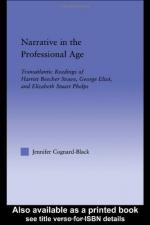|
This section contains 5,883 words (approx. 20 pages at 300 words per page) |

|
SOURCE: “Final Years,” in Elizabeth Stuart Phelps, Twayne Publishers, Inc., 1982, pp. 104-20.
In the following essay, Kessler explores images of women in Phelps's late fiction.
The final seven of twenty-five novels by Elizabeth Stuart Phelps are the work of a tired woman and lack the energetic conviction of her fiction from the 1870s and 1880s. She offers no innovative solutions to women's need for fulfillment or equality in relationships with men. Instead, from 1901 to 1908 she reworked previous material. From having concentrated upon male figures during the 1890s, she returns to her emphasis upon women—but her women have become spineless, dependent for their well-being upon the presence of sympathetic servants or men. Contrary to her earlier fiction, all upper-middle-class women accept marriage; only one housekeeper retains emotional independence. Marriages in process are no happier than in the earlier fiction, but the happy ending required by editors (namely, that...
|
This section contains 5,883 words (approx. 20 pages at 300 words per page) |

|


